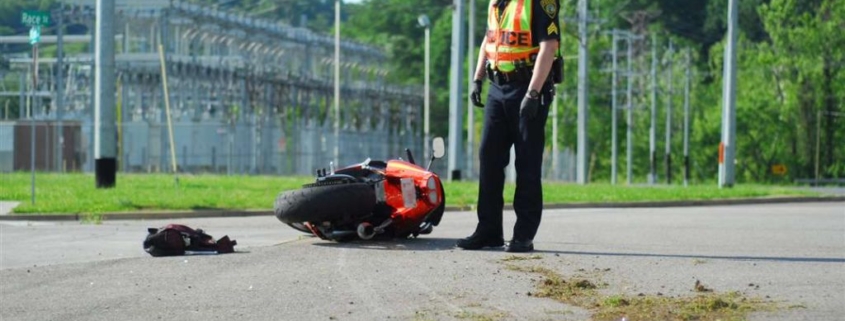Safeguarding Your Lawn and the Streets: Responsible Grass Clipping Disposal for Everyone
Maintaining a verdant, thriving lawn is a point of pride for homeowners, but the way you manage your lawn clippings can have far-reaching effects on both the environment and the safety of cyclists and motorcyclists. Disposing of grass clippings in the street might seem convenient, but it poses significant risks. In this blog post, we’ll delve into the reasons why this practice is detrimental, emphasizing the safety of cyclists and motorcyclists, and provide eco-friendly alternatives for managing your lawn waste responsibly.
The Hazards of Street Clipping Disposal
Placing grass clippings in the street might have unforeseen consequences that extend beyond your lawn:
- Threat to Safety: Grass clippings left on the road can become hazardous obstacles for cyclists and motorcyclists. These clippings create a slippery surface, reducing traction and increasing the risk of accidents, especially during wet conditions.
- Environmental Impact: Beyond safety concerns, grass clippings contain valuable nutrients crucial for soil and plant health. Rainwater can carry these clippings into storm drains, leading to nutrient pollution in local water bodies and affecting aquatic ecosystems.
- Storm Drain Blockage: Accumulated grass clippings in storm drains can block the flow of water, causing flooding during heavy rain. This poses a threat to property and necessitates costly repairs.
- Aesthetic Deterioration: Unsightly clippings on the street mar the beauty of neighborhoods, potentially impacting property values and overall community aesthetics.
Prioritizing Safety: A Shared Responsibility
Ensuring the safety of cyclists and motorcyclists is a shared responsibility, and proper grass clipping disposal is part of that effort:
- Mindful Mowing: When mowing your lawn, be conscious of the direction you’re cutting. Aim to direct clippings away from the road, preventing them from accumulating where they could pose a risk.
- Eco-Friendly Alternatives: Adopt eco-friendly practices like mulching, composting, or grasscycling. These alternatives provide valuable nutrients to your lawn while mitigating environmental and safety concerns.
- Eco-Friendly Alternatives with Safety in Mind
Here are some eco-friendly alternatives for grass clipping disposal that prioritize both the environment and the safety of cyclists and motorcyclists:
- Mulching: Mulching involves leaving grass clippings on the lawn after mowing. These clippings break down quickly, enriching the soil and promoting healthy grass growth without endangering road users.
- Composting: Add grass clippings to a compost bin alongside other organic materials. This process produces nutrient-rich compost that can enhance your garden’s soil while keeping the streets clear.
- Grasscycling: Cut your grass without a bag attachment, allowing clippings to decompose naturally on your lawn. This practice nourishes the soil and eliminates safety hazards on the road.
Responsible Lawn Care for a Safer Community
Promote safety for everyone on the road by adopting these responsible lawn care practices:
- Optimal Mowing: Set your lawnmower to the recommended mowing height for your grass type. Proper mowing enhances root growth, making your lawn more resilient and reducing the need for excessive watering.
- Regular Maintenance: Schedule routine lawn maintenance, including aeration, dethatching, and fertilization, to ensure a healthy, hazard-free lawn.
- Watering Wisely: Water your lawn during optimal times to minimize water waste and reduce the potential for slippery clippings on the road.
Caring for your lawn involves more than aesthetics; it’s about ensuring the safety of your community members and preserving the environment. By eschewing the unsafe practice of discarding grass clippings on the street and embracing responsible lawn care alternatives, you contribute to a cleaner, greener neighborhood that’s safe for everyone. Prioritize the safety of cyclists and motorcyclists while enriching your lawn through mulching, composting, or grass cycling, and together, we can create a safer, more sustainable environment for all.







Leave a Reply
Want to join the discussion?Feel free to contribute!